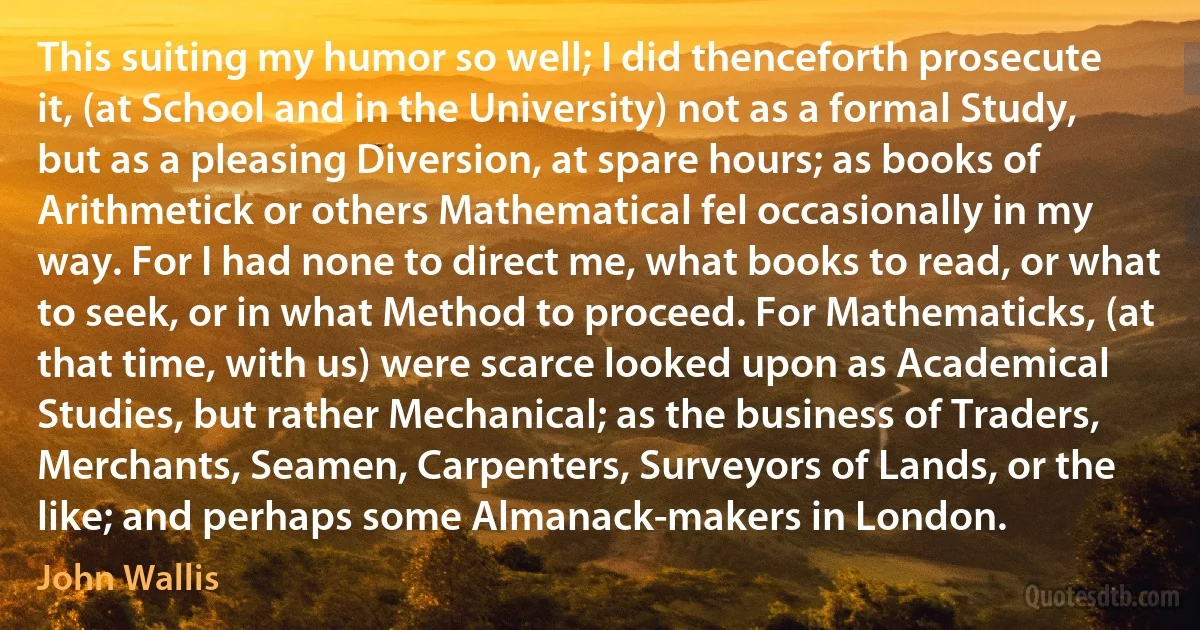Diversion Quotes - page 2
The art of thinking is also the art of believing, because no human being at the present stage of civilization could safely call all his individual and social beliefs into question again or submit them to his conscience. To change all one's opinions is a mental diversion which requires leisure for its indulgence. In order to live a life of action, man must accept most of the moral, social, and religious laws which have been recognized as necessary by his predecessors.

André Maurois
I know many people who like watching commercials because they're so funny. They provide relaxation and diversion. People come home after a day's work, from which they derive little satisfaction, and feel the need for diversion and amusement. The word diversion itself is already very significant. When Pascal uses the word diversion he means that people who follow the path of God deviate from the path which leads them to God as a result of diversion and amusement. Instead of thinking of God, they amuse themselves. So, instead of thinking about the problems which have been created by technology and our work we want to amuse ourselves.

Jacques Ellul
Far too many people, especially within evangelicalism, think that the individual is all that matters, and that the corporate dimension is a distraction or diversion. Of course Christianity is deeply personal for every single Christian; nobody gets lost in the kingdom of God. But you can't play that off against the corporate dimension.

N.T. Wright
My walk home was lengthened by a diversion in the direction of the kirk. When beneath its walls, I perceived decay had made progress, even in seven months - many a window showed black gaps deprived of glass; and slates jutted off, here and there, beyond the right line of the roof, to be gradually worked off in coming autumn storms.I sought, and soon discovered, the three head-stones on the slope next the moor - the middle one, gray, and half buried in heath - Edgar Linton's only harmonized by the turf and moss, creeping up its foot - Heathcliff's still bare.I lingered round them, under that benign sky; watched the moths fluttering among the heath and harebells; listened to the soft wind breathing through the grass; and wondered how any one could ever imagine unquiet slumbers for the sleepers in that quiet earth.

Emily Brontë
I used to wonder why Lucy liked those songs so much. You know what I mean? She sits in the dark and listens and cries. Music does that to her...I didn't understand for a long time. But I do now. The sad songs are a safe hurt. It's a diversion. It's controlled. And maybe it helps you imagine that real pain will be like that. But it's not. Lucy knows that, of course. You can't prepare for real pain. You just have to let it rip you apart.

Harlan Coben
In order to give the better effect to this diversion, a hole is dug in the ground for the retreat of the animal; and the dogs run at him singly in succession; for it is not usual, I believe, to permit any more than one of them to attack him at once; and the dog which approaches him with the least timidity, fastens upon him the most firmly, and brings him the soonest from his hole, is accounted the best. The badger was formerly called the "grey," hence the denomination of grey-hounds applied to a well known species of dogs, on account of their having been generally used in the pursuit of this animal.

Joseph Strutt
I have already informed my readers, that bull-baiting, or worrying of bulls with dogs, was one of the spectacles exhibited by the jugglers and their successors. It is also necessary to observe, that this cruel pastime was not confined to the boundaries of the bear-gardens; but was universally practiced on various occasions, in almost every town or village throughout the kingdom, and especially in market towns, where we find it was sanctioned by the law; and in some of them, I believe, the bull-rings, to which the unfortunate animals were fastened, are remaining to the present hour. It may seem strange, that the legislature should have permitted the exercise of such a barbarous diversion, which was frequently productive of much mischief by drawing together a large concourse of idle and dissipated persons, and affording them an opportunity of committing many grross disorders with impunity. Indeed a public bull-baiting rarely ended without some riot and confusion.

Joseph Strutt
Training of bulls, bears, horses, and other animals, for the purpose of baiting them with dogs, was certainly practiced by the jugglers; and this vicious pastime has the sanction of high antiquity. Fitz-Stephen, who lived in the reign of Henry II, tells us that, in the forenoon of every holiday, during the winter season, the young Londoners were amused with boars opposed to each other in battle, or with bulls and full-grown bears baited by dogs. This author makes no mention of horses; and I believe the baiting of these noble and useful animals was never a general practice: it was, however, no doubt, partially performed...Asses also were treated with the same inhumanity; but probably the poor beasts did not afford sufficient sport in the tormenting, and therefore were seldom brought forward as the objects of this barbarous diversion.

Joseph Strutt
We have to overthrow the idea that it's a diversion from 'real' work when scientists conduct high-quality research in the open. Publicly funded science should be open science. Improving the way that science is done means speeding us along in curing cancer, solving the problem of climate change and launching humanity permanently into space.

Michael Nielsen



